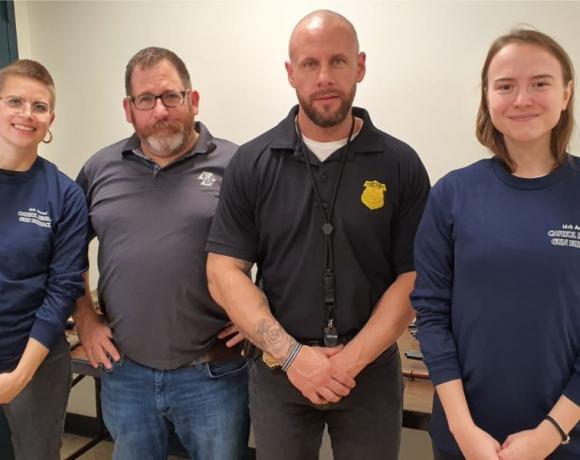Practice
The VRC provides practical instruction on choosing, applying, and aligning the right combination of evidence-based strategies that are best suited to a particular jurisdiction’s community violence challenge. A key feature of this instruction is the Practicum on Partnership-Based Violence Reduction.
The Practicum brings together local teams of community leaders, law enforcement, and service providers, among others, to be trained in the collaborative selection, implementation, and coordination of evidence-informed anti-violence strategies.
These multidisciplinary teams undertake joint learning activities, reinforcing the understanding that collaboration is essential to violence reduction. Participants are introduced to a wide body of evidence indicating that overall success depends on a balanced set of anti-violence strategies. That empirical understanding is then supplemented by practical guidance on multi-sector collaboration and team building.
Conducted over 3-5 business days, the Practicum features state-of-the-art instruction that is rigorous yet practical, profiling strategies supported by rigorous evidence of effectiveness, yet emphasizing real-world application and implementation. Participants learn from prominent researchers and experienced practitioners who have implemented anti-violence programs successfully in the field.
Working with Practicum instructors, participants also engage in a planning exercise to guide future anti-violence activities in their jurisdiction. If the jurisdiction currently has no plan, participants develop one; if a plan already exists, participants review and improve it.
It is expected that plan development will continue after the Practicum ends, so the VRC offers customized technical assistance to complete development and begin implementation. Working remotely, VRC staff answer questions, review materials, provide feedback, and offer ongoing strategic guidance on a wide array of issues.
These lifesaving trainings and services are free of charge. Our capacity is limited, but if your jurisdiction is interested in collaborating with the VRC, please have local leaders reach out to us today.
Participating Jurisdictions
Knoxville, Tennessee
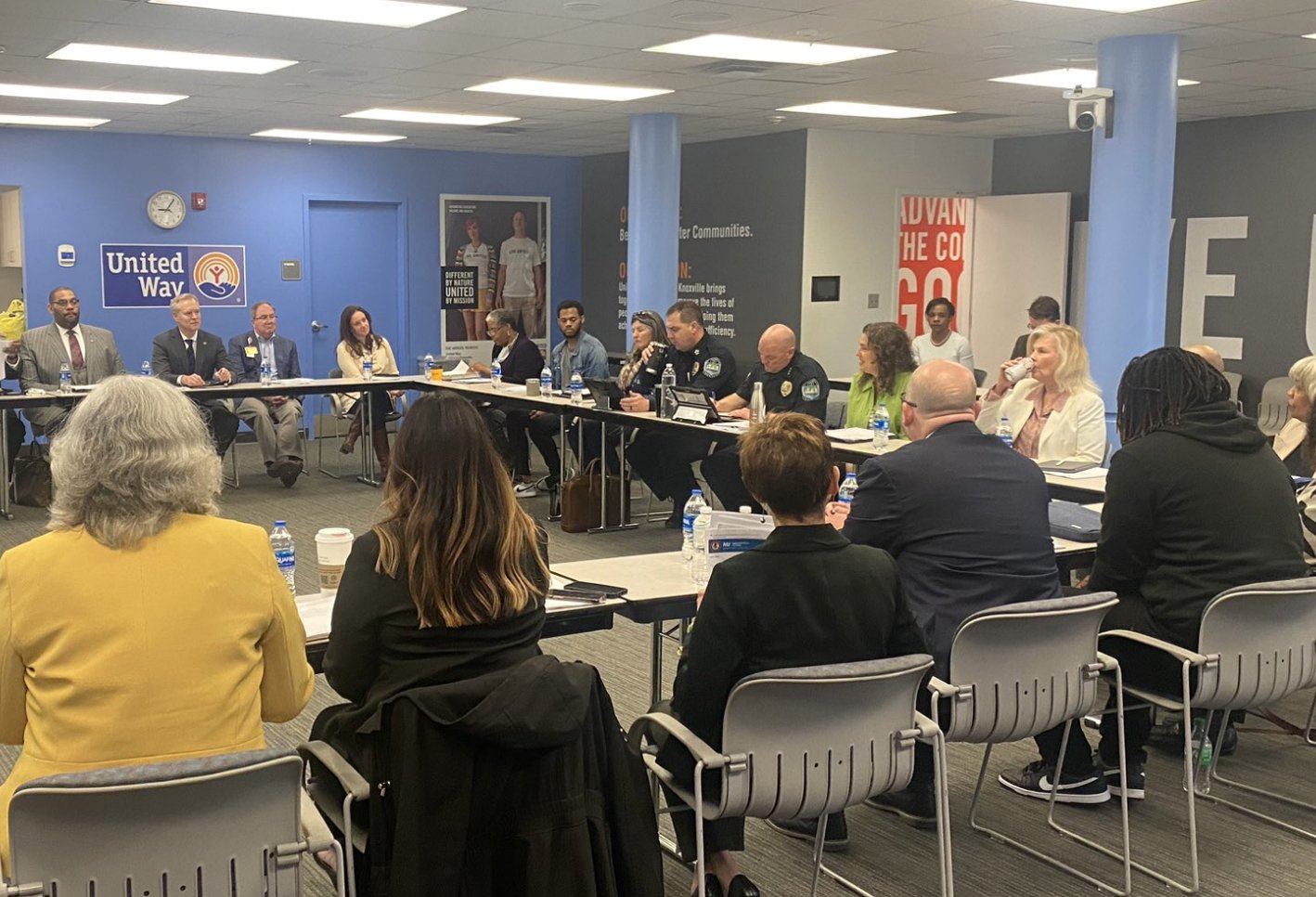
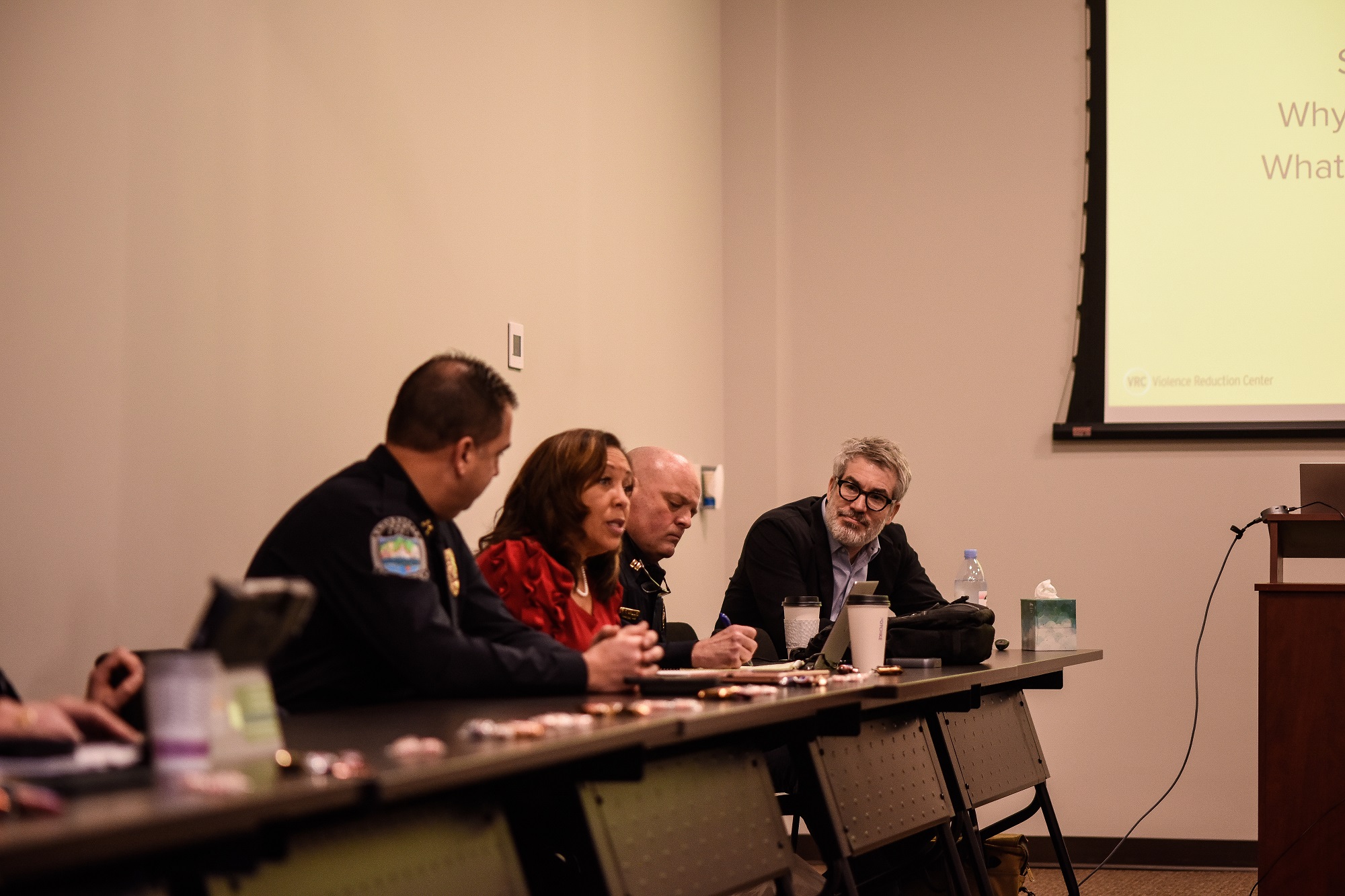
On December 6th, 2022, the VRC began a 4-day engagement with leaders in Knoxville, Tennessee to develop a new collaborative approach to addressing community violence. The practicum opened with remarks from Mayor Indya Kincannon and VRC Director Thomas Abt, along with a presentation of an in-depth problem analysis to establish a shared understanding of the nature and character of the community violence challenge facing Knoxville.
After the opening sessions, leaders from faith-based, community-based, governmental, law enforcement, and social service organizations attended a series of meetings to learn directly from leading experts and practitioners about evidence-informed violence reduction strategies. They discuss the feasibility of these strategies in terms of implementation in Knoxville, then composed a “plan to plan” for a new citywide strategy moving forward.
Since the practicum, the Knoxville “plan to plan” was reviewed and approved. Leadership and management committees have been established to oversee plan implementation, which is underway. In 2023, Knoxville experienced a 33% reduction in homicides and 12% reduction in nonfatal shootings, significantly exceeding plan goals.
Boston, Massachusetts
Beginning April 4th, 2023, the VRC engaged a diverse set of leaders in Boston to discuss strategies for reducing community violence, particularly community violence involving firearms. The first sessions were open to the public and included remarks from Mayor Michelle Wu, Suffolk District Attorney Kevin Hayden, Police Commissioner Michael Cox, U.S. Representative Ayanna Pressley, and Reverend Jeffrey Brown, among others.
After these sessions, a smaller group of civic and community leaders met for a series of meetings over a span of three days. During these meetings, participants heard from VRC staff as well as leading experts in anti-violence strategies from across the country. Participants debated the merits of these strategies and ultimately decided on a short “plan to plan” to help guide the city’s future anti-violence efforts.
Plan implementation is underway in Boston. In 2023, the city experienced a 7.5% reduction in homicides and 20% reduction in nonfatal shootings, exceeding plan goals.
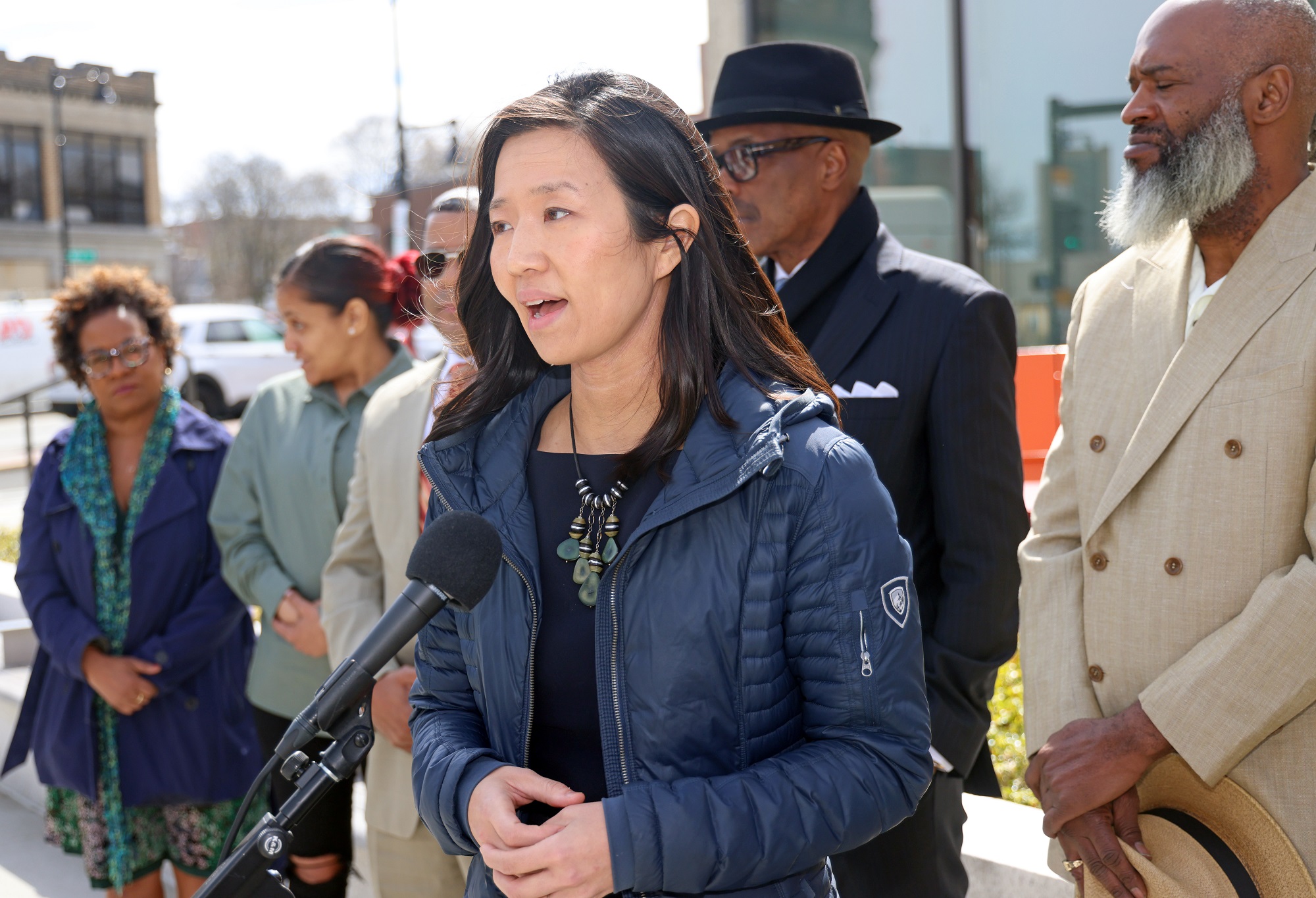
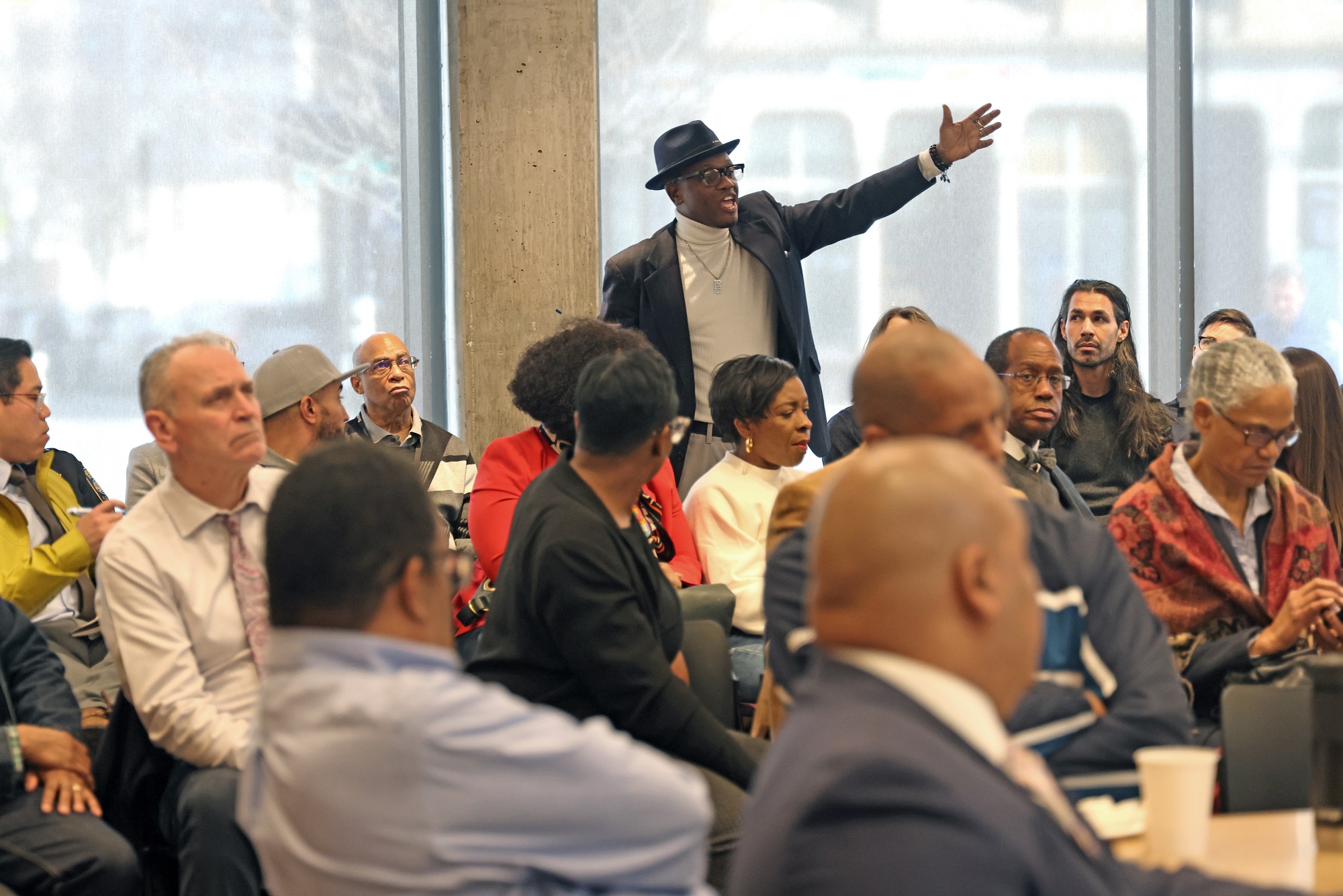
St. Louis, Missouri
Beginning on December 4th, 2023, the VRC gathered key stakeholders from across Greater St. Louis to lay the groundwork for a region-wide approach to violent crime. The event began and ended with public sessions in which regional leaders shared data with and received feedback from members of the community. The VRC and its partners also provided participants with a primer on the fundamental principles of evidence-based programs for reducing community gun violence.
Over the next four days, leaders from law enforcement agencies, court and prosecutor offices, county and municipal governments, advocacy groups, and social services providers participated in a series of working sessions. During these meetings, prominent violence reduction experts briefed participants on the state of the science and practice of violence prevention. Participants developed a strategy to reduce violence on a regional level based on national best practices and local considerations, and drafted a "plan to plan" that will guide the region's anti-violence efforts.
Plan implementation is expected to start in mid-2024. Regional leaders aim to cut homicides by 20%. In support of this goal, the VRC will remain engaged with St. Louis stakeholders as they work to save lives in their communities.
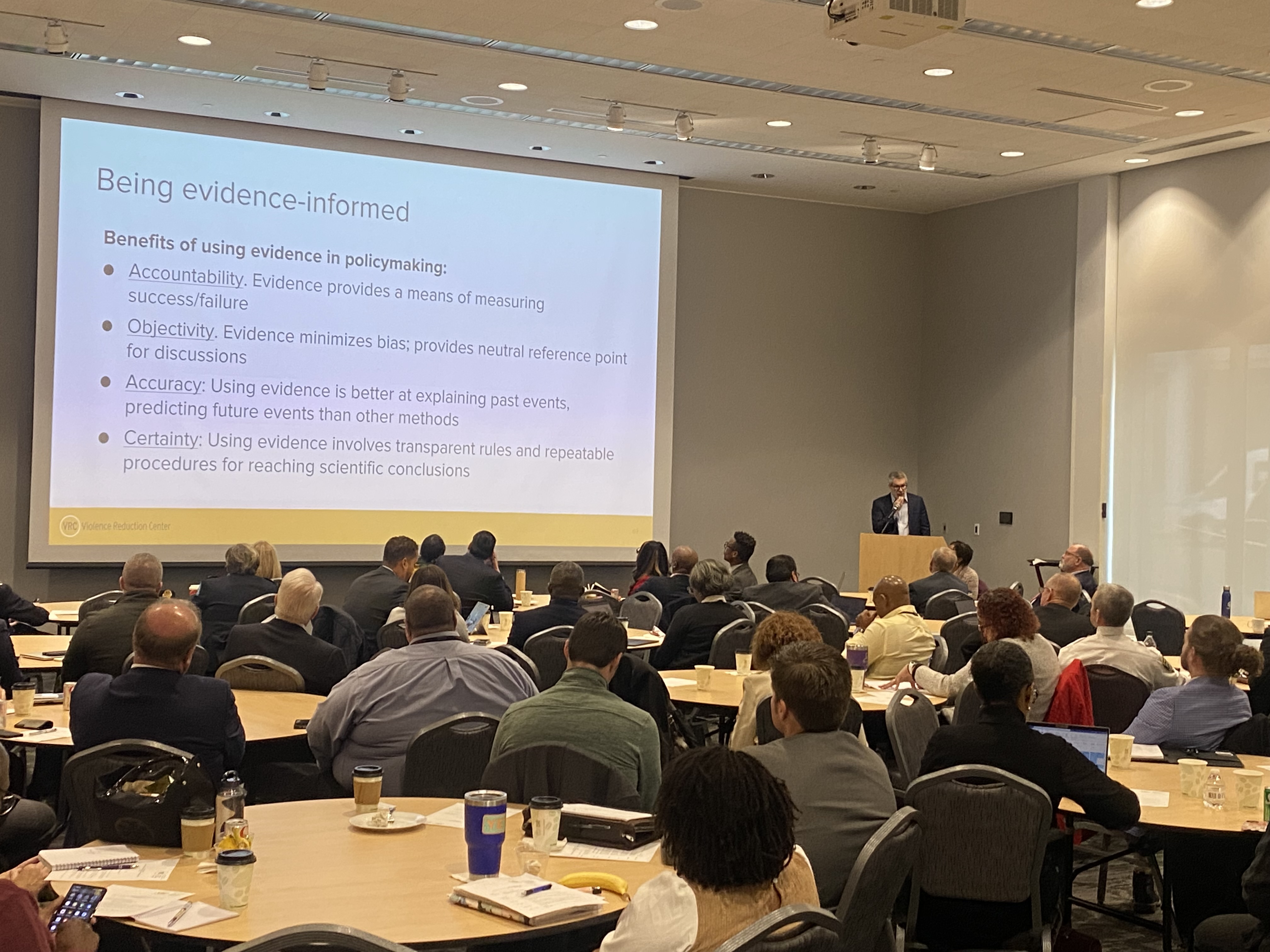
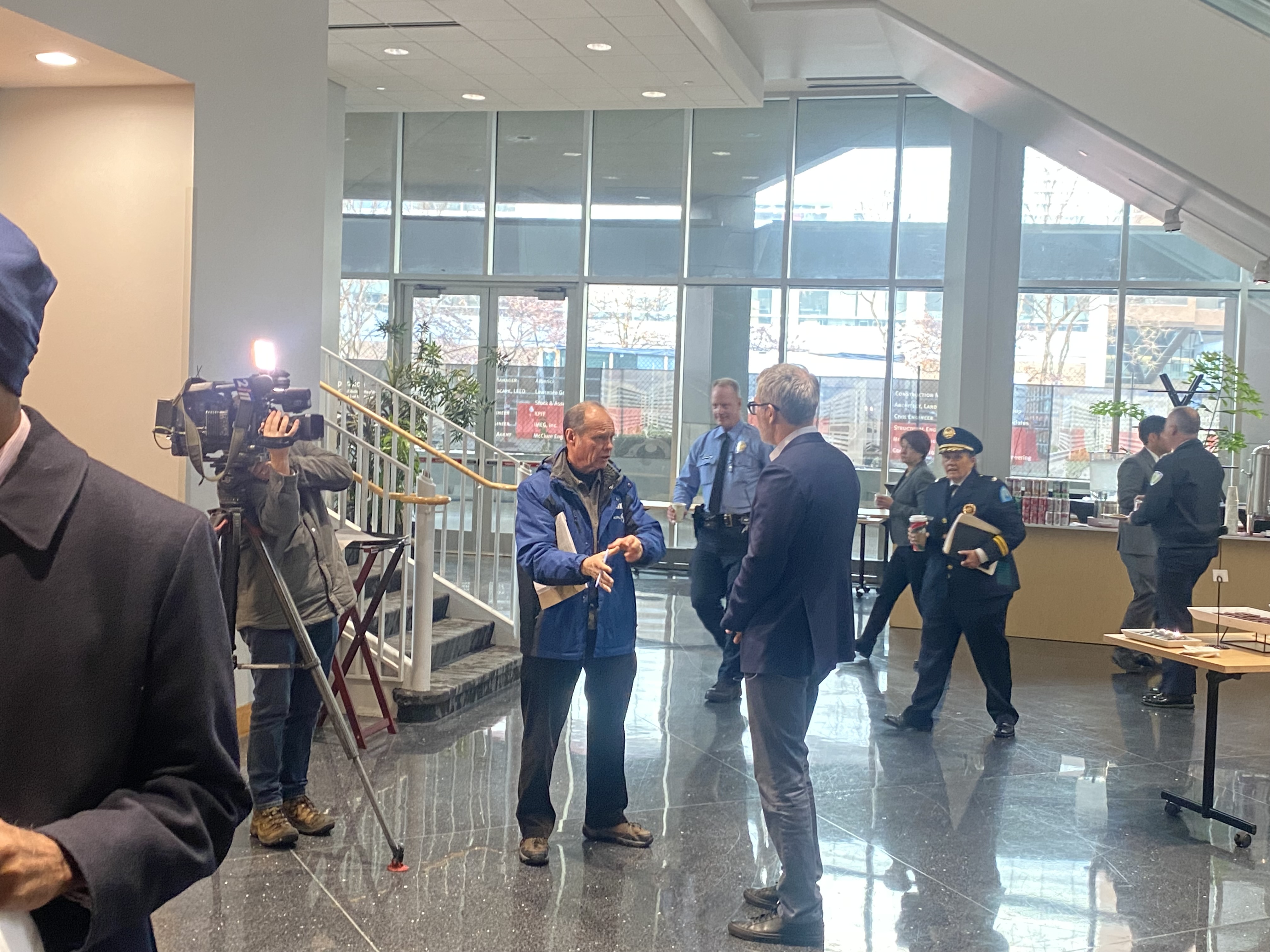
Selected Practica Contributors
Featured Resources
The Council on Criminal Justice's Violent Crime Working Group, chaired by VRC Director Thomas Abt, offers a wide array of practical resources. Useful bulletins include: Understanding Violent Crime, Community Based Responses to Violence, Law Enforcement Based Responses to Violence, Integrating Local Violence Reduction Efforts: State and Federal Support, and the Group's final report, Saving Lives: Ten Essential Actions Cities Can Take to Reduce Violence Now.
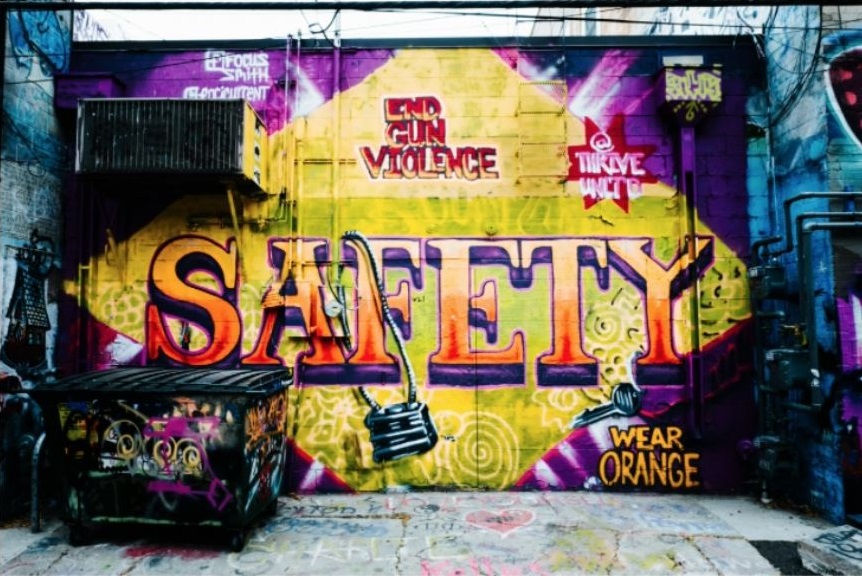
The Youth Endowment Fund offers an easy-to-use Toolkit that provides an wide overview of approaches to preventing serious youth violence.
Other Practice Resources
Many organizations are producing useful materials and providing assistance in this important area. Below is a curated list of selected high-quality resources for review.
The California Partnership for Safe Communities helps cities achieve near-term and community-wide reductions in violence; while improving police-community trust and increasing opportunities for community members at imminent risk of violence.
The Giffords Center for Violence Intervention researches and promotes community violence intervention strategies, connects community organizations to policymakers and to one another, and helps secure funding for violence intervention initiatives nationwide.
The Health Alliance for Violence Intervention builds and connects hospital-based and hospital-linked violence intervention programs and promotes equity for victims of violence globally.
The National Institute for Criminal Justice Reform (NICJR) provides technical assistance, consulting, research, organizational development, and advocacy to reduce incarceration and violence, improve the outcomes of system-involved youth and adults, and increase the capacity of organizations that serve these individuals.
The National Network for Safe Communities provides violence reduction strategies to dozens of cities across America and internationally. Their portfolio includes proved approaches to firearm and group-related violence, intimate partner violence, and illicit drug markets, with a robust formal evaluation record.
The READI National Center partners with communities to strengthen their approaches to community violence intervention through systems change, program innovation, field support, and knowledge sharing.
The Roca Impact Institute equips institutions and individuals with evidence-informed tools and strategies to address trauma, reduce violence and improve outcomes for young people.
The University of Chicago Community Safety Leadership Academies offer trainings for the next generation of policing and CVI leaders The effort brings together data and behavioral science insights of top academics and leading practitioners with a track record of real-world success.
The Urban Peace Institute trains gang intervention workers across the United States, using a public health approach to reduce community violence.
The U.S. Department of Justice Community Based Violence Intervention and Prevention Initiative supports efforts to address gang and gun violence, based on partnerships among community residents, local government agencies, victim service providers, community-based organizations, law enforcement, hospitals, researchers, and other community stakeholders.






